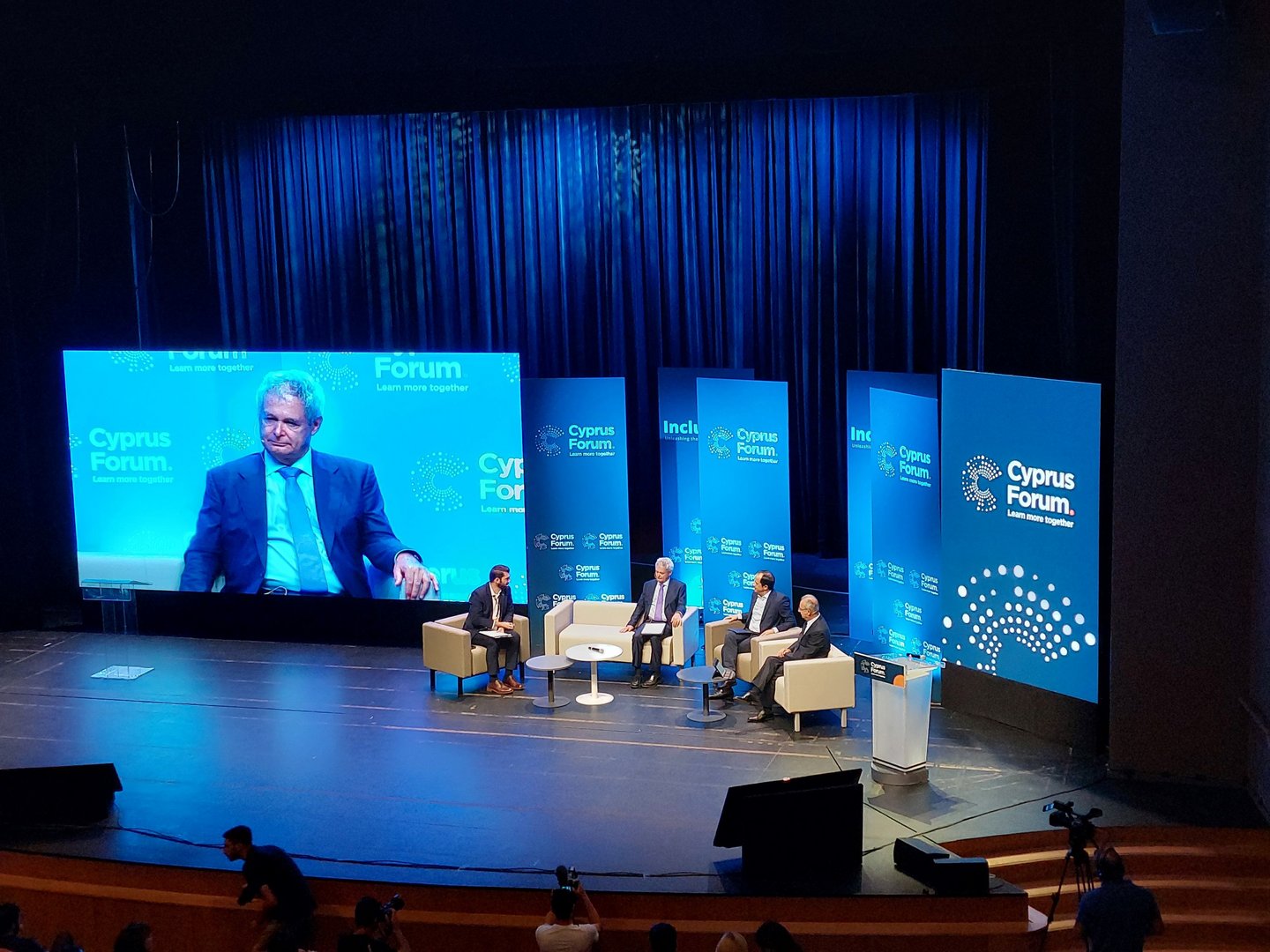In his speech at the Cyprus Forum on Thursday, the UN Secretary-General’s Special Representative Colin Stewart said he was extremely concerned because “the option of a mutually agreed settlement of the conflict is fading and will not be available much longer.”
He explained that “the separation of the island is growing and the integration of the north – economically and politically – with Turkey is accelerating due to the very difficult economic situation on that side of the island. If present trends continue, the idea of a mutually agreed settlement will soon become unviable.”
Nobody could disagree with his assessment of the situation. He was probably mistaken, however, in expressing the belief that a majority of Cypriots want the division of the island to end. Perhaps the majority of Turkish Cypriots want it to end, because they believe it is the only way to safeguard their identity which is being gradually wiped out by Turkey. But the Turkish Cypriots might no longer be the majority of the population in the north, which has been swarmed by mainland Turks.
As for the Greek Cypriots, the majority may want the division to end, but not in the way the UN has in mind, by bizonal, bi-communal federation. There are many who want it ended with a return to the constitution of 1960, which will never happen, and oppose anything less. Then there are those who oppose an end to division because they fear their financial or career interests would be hurt. And then there are people who believe their security would be at risk by reunification.
It is questionable whether an actual majority of Greek Cypriots wants the end of division. In the 2004 referendum, 76 per cent of Greek Cypriots voted against the Annan Plan while in 2018 Nicos Anastasiades swept into a second term, seven months after rejecting the best-ever settlement terms offered in Crans Montana and walking out. His actions enhanced rather than harmed his re-election prospects.
If the majority of Greek Cypriots wanted a settlement the three clear front-runners in the 2023 presidential elections would not be two candidates who worked closely with Anastasiades to wreck the best-ever opportunity for a settlement – they were also employees of the foreign ministry which has an anti-settlement culture – and another who offered unwavering support to his decisions.
All three shared the stage at the Cyprus Forum, appearing after Stewart, and uttered the meaningless Cyprus problem generalisations which are invariably presented as support for a settlement. Averof Neophytou said that we needed to “secure a single entity, a single sovereignty, one citizenship, one international personality, and autonomy of the two entities.” All this had been secured at Crans Montana, but Anastasiades still walked out without a word of criticism from Neophytou.
Nikos Christodoulides said that after 1974 we should have invested in the Turkish Cypriots, who supported a settlement, and we should now send a clear message of cooperation to them. Why had he not sent a clear message of cooperation to the Turkish Cypriots in his four years as foreign minister instead of adopting the familiar confrontational approach in the hope of punishing Turkey to enhance his political capital? No politician does his career prospects any harm by adopting a hard line on the Cyprus issue.
Appealing to the Turkish Cypriots was also Andreas Mavroyiannis’ suggestion. We must set up an Office for Turkish Cypriot Affairs, he said, and regain the trust of the Turkish Cypriots! We must also unwaveringly insist on the Security Council resolutions and the Guterres framework, the authenticity of which Mavroyiannis had been questioning for many years after it was presented, in line with the president.
Greek Cypriot politicians have always pretended that the Cyprus problem could be solved through platitudes and hollow rhetoric. The three above-mentioned candidates are following a long tradition of political insincerity, which does not antagonise voters. We should, however, not place the responsibility for the opposition to reunification exclusively on the politicians, who want to be popular and invariably tell people what they want to hear. And sadly most people do not want to hear of bold initiatives for a settlement that would by definition contain an element of risk.
Politicians have a very supportive audience for this political theatre about desire for a Cyprus settlement that has been successfully staged for decades. We all seem to be content to delude ourselves. Is it not time though to make a choice on what we actually want, instead of living in a twilight zone, sustained by empty rhetoric and false hopes? It is time to leave this twilight zone, decide what we actually want as regards the Cyprus issue and stick to it, so can move on as a society. If it is partition, we will reach agreement with the Turkish side in a matter of hours.







Click here to change your cookie preferences